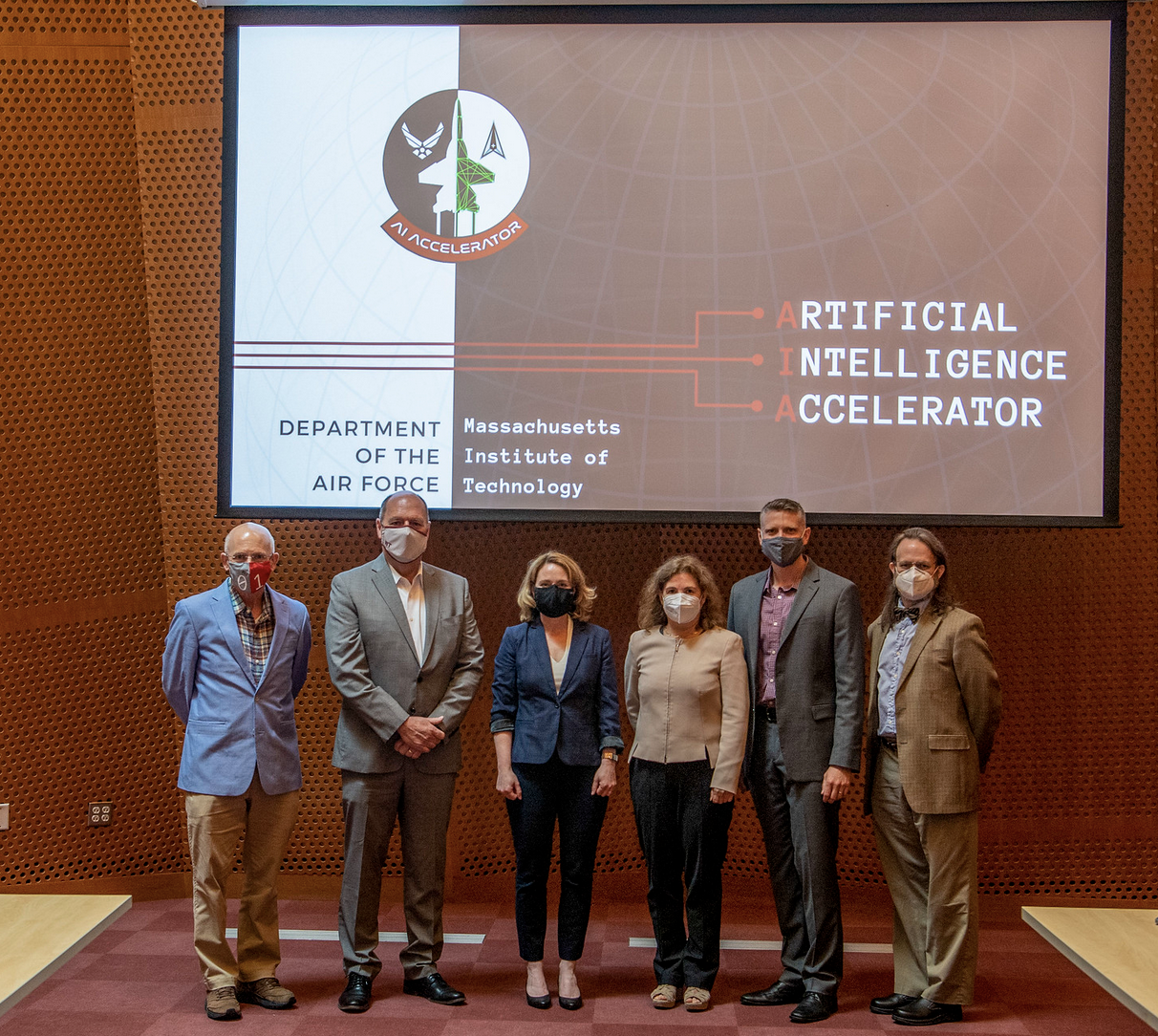Last week the United States Deputy Secretary of Defense Dr. Kathleen Hicks visited the United States Air Force-MIT Accelerator, hosted at MIT’s Computer Science and Artificial Intelligence Laboratory (CSAIL), to discuss advancing the national AI ecosystem to address broad societal needs and the contributions of the Department of the Air Force-MIT AI Accelerator.
In January 2020, the AI Accelerator launched ten multi-year interdisciplinary projects involving researchers from MIT, MIT Lincoln Laboratory, and the Department of the Air Force. The projects, which encompass a total of 15 research workstreams, advance AI research in a broad range of areas, including weather modeling and visualization, optimization of training schedules, and enhanced autonomy for augmenting and amplifying human decision-making. The AI Accelerator has recently expanded its research activities, including the launch of an AI Education Research project in January 2021.
During Hicks’ visit, MIT professor and CSAIL director Daniela Rus began the discussion by illustrating the critical research in AI needed to improve areas such as disaster response, navigation, weather modeling and visualization, optimization of training schedules, and enhancement of autonomy for augmenting and amplifying human decision-making. Rus went on to detail the importance of explainable machine learning, robustness, and the development of algorithms for augmenting and amplifying human decision making. Specifically, improving flight maneuver safety and efficiency by anticipating hazardous situations and providing decision making support to pilots.
“AI systems can be a partner or guardian for the aircrew, especially for agents that can provide support to aircrew in situations that require quick decision making under cognitive overload, especially when there are dynamic unpredictable events,” says Rus.
Another area of AI applications discussed was improving operational efficiency such as mission and training scheduling. In an effort to streamline the manual and time consuming process, researchers recently created an optimization tool to transform the laborious process of staffing C-17 cargo flights. Their AI-enabled plugin automates aircrew scheduling while also optimizing crew resources.
The talk concluded with an overview of the educational research component of the AI Accelerator, focused on enabling new ways to deepen the understanding of the fundamentals of AI that will benefit AI learners across the nation, while supporting the DoD’s objective to develop elite and world-class AI-ready services.
“Our Department of the Air Force service members, in collaboration with many of the foremost leaders in the fields of computational science, embodies our deep commitment to the responsible development of AI, the thoughtful use of it by our Air and Space Force professionals, and ensures we are operating today with tomorrow in mind. This is what the future looks like,” says Major Michael Kanaan, Director of Operations.
“AI provides a competitive advantage to the commercial sector, and is critical to the advancement of military capabilities and our national defense and security. Innovative partnerships between American universities and the military are fundamental to national success, and it was great to see the USAF-MIT AI Accelerator program’s collaborative efforts firsthand," says Deputy Secretary of Defense Dr. Kathleen Hicks.

